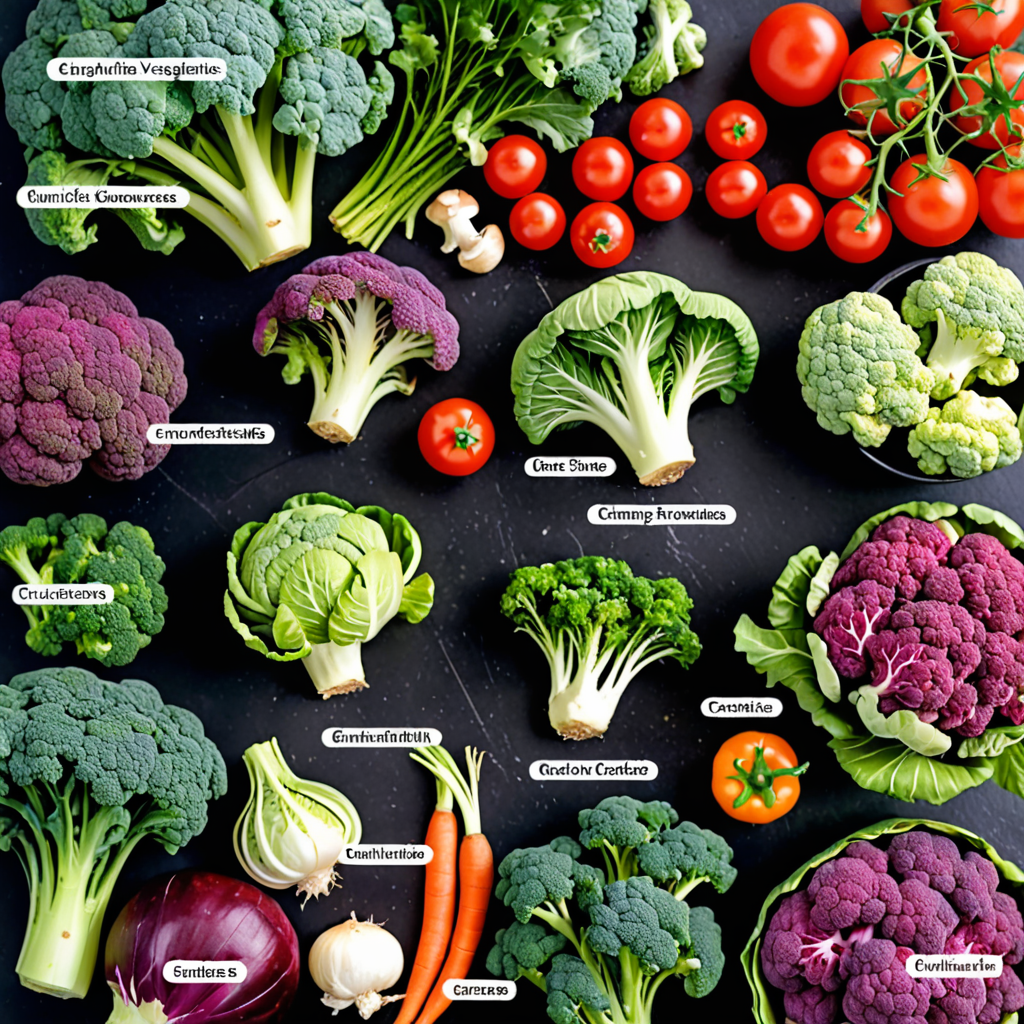
The Benefits of Including Cruciferous Vegetables in Your Diet
Introduction to Cruciferous Vegetables
Cruciferous vegetables are a group of vegetables that belong to the Brassicaceae family. They are packed with nutrients and are known for their unique taste and various health benefits. Some common examples of cruciferous vegetables include broccoli, cauliflower, kale, Brussels sprouts, and cabbage.
Rich in Nutrients
Cruciferous vegetables are rich in essential vitamins, minerals, and antioxidants, making them a valuable addition to your diet. They are excellent sources of vitamin C, vitamin K, folate, and fiber. Additionally, they contain bioactive compounds like sulforaphane and indole-3-carbinol, which have been linked to various health benefits.
Powerful Anti-Cancer Properties
Several studies have shown that cruciferous vegetables have powerful anti-cancer properties. The compounds found in these vegetables can help reduce inflammation, neutralize carcinogens, and inhibit the growth of cancer cells. Regular consumption of cruciferous vegetables has been associated with a lower risk of certain types of cancer, including breast, prostate, and colon cancer.
Supports Heart Health
Including cruciferous vegetables in your diet can benefit your heart health. These vegetables are rich in fiber, which can help lower cholesterol levels and improve heart function. The antioxidants and phytochemicals present in cruciferous vegetables also play a role in reducing the risk of heart disease and stroke.
Weight Management
Cruciferous vegetables are low in calories and high in fiber, making them an excellent choice for those looking to manage their weight. The fiber content in these vegetables helps you feel full for longer periods, reducing overall calorie intake. Incorporating cruciferous vegetables into your meals can support weight loss and maintenance goals.
Improves Digestive Health
The fiber content in cruciferous vegetables not only aids in weight management but also promotes healthy digestion. Fiber helps regulate bowel movements, prevent constipation, and maintain a healthy gut microbiome. Eating a variety of cruciferous vegetables can contribute to better digestive health and overall gut function.
Enhances Immune Function
Cruciferous vegetables are packed with immune-boosting nutrients like vitamin C, which plays a crucial role in enhancing immune function. By including these vegetables in your diet, you can strengthen your immune system and better protect your body against infections and diseases.
Incorporating a variety of cruciferous vegetables into your daily meals can provide numerous health benefits, ranging from cancer prevention to improved heart health and digestion. By making them a staple in your diet, you can support your overall well-being and enhance your long-term health outcomes.
FAQs About the Benefits of Cruciferous Vegetables
What are cruciferous vegetables?
Cruciferous vegetables are a group of plants that belong to the Brassicaceae family. They include broccoli, kale, cabbage, cauliflower, and Brussels sprouts, among others. These veggies are known for their unique, cross-shaped flower petals.
Why are cruciferous vegetables beneficial for health?
Cruciferous vegetables are packed with nutrients like vitamins C, K, and E, as well as fiber and antioxidants. They are also rich in phytochemicals like sulforaphane and indole-3-carbinol, which have shown potential cancer-fighting properties.
How do cruciferous vegetables promote gut health?
Cruciferous vegetables contain fiber that acts as a prebiotic, supporting the growth of beneficial gut bacteria. This can help improve digestion, reduce inflammation, and enhance overall gut health.
Can cruciferous vegetables help with weight management?
Yes, cruciferous vegetables are low in calories and high in fiber, which can aid in weight management. The fiber content helps you feel full longer, reducing the likelihood of overeating and supporting weight loss or maintenance efforts.
Are there any potential downsides to consuming cruciferous vegetables?
While cruciferous vegetables offer numerous health benefits, some


